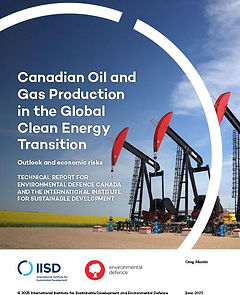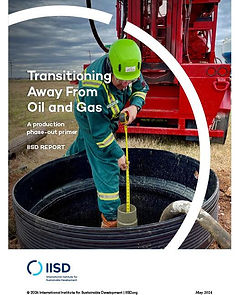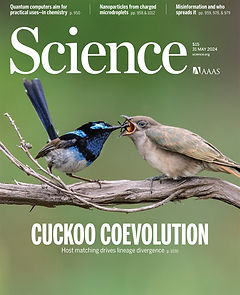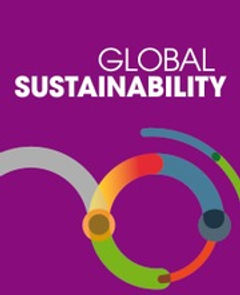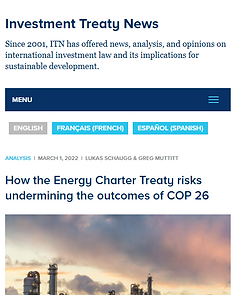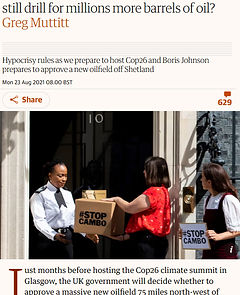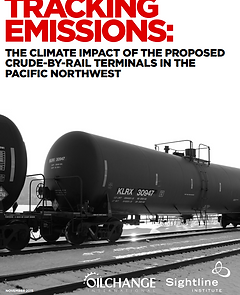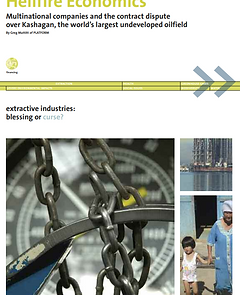Publications

This is IISD’s response to the UK consultation on how to change its regulations for environmental impact assessments of offshore oil and gas fields, to account for the emissions that occur when the oil or gas are eventually consumed.
Briefing
2025
Response to DESNZ Consultation on Scope 3 Emissions Guidance

Methodology and data used in the Civil Society Equity Review 2023, for calculating equitable timelines for phasing out fossil fuel extraction, and the amounts of financial resources required to enable the phaseout.
Report
2024
Methodology Appendix
for "An Equitable Phase Out of Fossil Fuel Extraction"
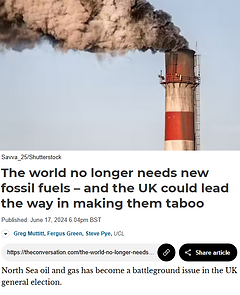
The article argues that the UK has an opportunity to take a leading role in making fossil fuels socially and politically unacceptable, setting an example for other nations in tackling climate change.
Article/Op-ed
2024
The world no longer needs new fossil fuels
The UK could lead the way in making them taboo

This report proposes science and equity-based dates by which different countries should end coal, oil and gas extraction to limit warming to 1.5°C, the amounts of international support needed to make this possible, and which countries should provide this support.
Report
2023
An Equitable Phaseout Of Fossil Fuel Extraction
Towards a reference framework for a fair and rapid global phaseout
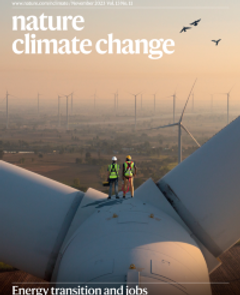
In IPCC pathways limiting warming to 1.5°C, global coal power generation declines very rapidly. This paper assesses the challenges this would create, and proposes a fairer balance between coal, oil and gas phaseout.
Peer-reviewed article
2023
Socio-political feasibility of coal power phase-out
Its role in mitigation pathways

The first bottom-up assessment of committed CO2 emissions from fossil fuel-producing infrastructure, finding that existing fields and mines contain enough oil, gas and coal to significantly exceed 1.5°C carbon budgets.
Peer-reviewed article
2022
Existing fossil fuel extraction would warm the world beyond 1.5°C

This blog summarises research commissioned from the Tyndall Centre at Manchester University, on phaseout pathways for fossil fuel production within Paris-compliant carbon budgets, differentiating countries according to equity principles.
Blog
2022
Countries Must Phase Out Oil and Gas Production
—and Quickly

My expert witness statement in Jeremy Cox et al’s case against the Oil & Gas Authority’s ‘Maximising Economic Recovery’ strategy. It focuses on the low taxes oil companies pay, and the impacts of that for the economy and for climate change.
Expert witness testimony
2021
Economic impacts of UK oil and gas fiscal system

This report examines the role of gas in the Global South. It assesses public finance flows, risks from gas development, the status of alternatives to gas, and how to overcome the challenges of transition. It has detailed case studies of Argentina, Egypt, and India.
Report
2021
Step Off the Gas
International public finance, natural gas, and clean alternatives in the Global South
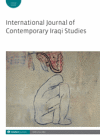
This article revisits the debates on the oil motive for the Iraq War. It examines US/UK strategic objectives, how the governments planned to achieve them and how they decided to talk about them in public.
Peer-reviewed article
2018
No blood for oil, revisited
The strategic role of oil in the 2003 Iraq War

My opening statement, presented at the Irish parliament’s inquiry into the proposed Petroleum Bill. It makes the case that meeting Ireland’s climate goals requires ending the licensing of new oil and gas fields, critiques the idea of gas as a ‘transition fuel’ and shows why restricting fossil fuel supply is an effective policy.
Expert witness testimony
2018
Climate limits and fossil fuel production

My expert witness statement in Friends of the Earth’s legal case against UK Export Finance support for Total’s Mozambique LNG project. It focuses on how to assess climate impact of a fossil fuel project, and the role of gas in the energy transition.
Expert witness testimony
2011
Total's Mozambique LNG project
Assessment of greenhouse gas emissions

This commentary summarises and discusses my report revealing how BP and the Iraqi government secretly renegotiated the contract for the Rumaila field, after an apparently transparent auction, and how this skewed the benefits in favour of BP.
Article/Op-ed
2011
From glass box to smoke-filled room - How Rumaila contract was renegotiated

This report reveals how BP and the Iraqi government secretly renegotiated the contract for the Rumaila field, after an apparently transparent auction, and how this skewed the benefits in favour of BP.
Report
2011
From Glass Box to Smoke Filled Room
How BP secretly renegotiated its Iraqi oil contract, and how Iraqis will pay the price

